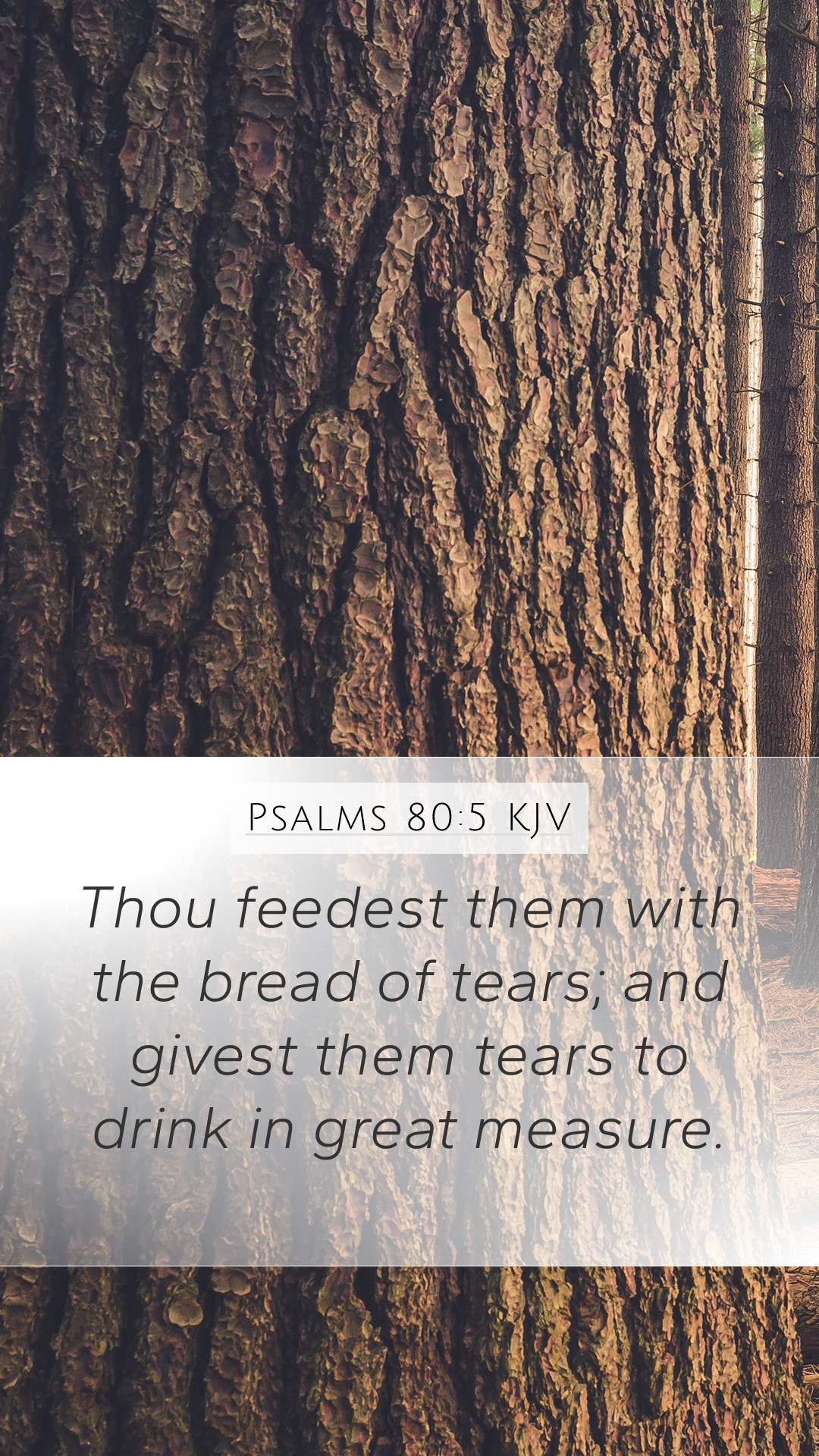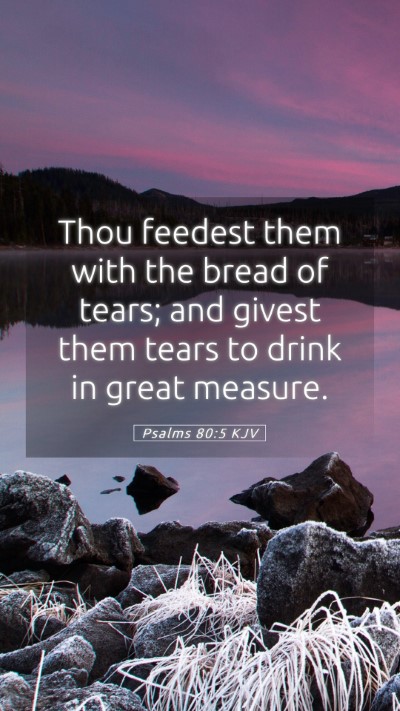Psalms 80:5 - Understanding the Verse
The verse Psalms 80:5 states:
"You have fed them with the bread of tears and given them tears to drink in full measure."
This verse provides a poignant depiction of the emotional and spiritual distress experienced by the people of Israel. Through the lens of public domain commentaries such as those by Matthew Henry, Albert Barnes, and Adam Clarke, we see a layered understanding that enriches our Bible verse meanings and serves as valuable insight for Bible study groups or online Bible study.
Commentary Insights
-
Matthew Henry's Commentary
Henry emphasizes the symbolism of "bread of tears," suggesting it represents the sorrow and grief that have overshadowed the Israelites due to their sins and God's displeasure. He further elaborates that this verse encapsulates the intense cries for help amid their suffering, pointing out that the Israelites treat their tears as a form of sustenance, indicating how deep their anguish runs.
-
Albert Barnes' Notes
Barnes explains that the verse portrays the state of Israel at the time of suffering under oppression. The "tears to drink in full measure" signify not just a fleeting sadness but a profound and persistent grief that fills their lives. He notes that this reflects God's discipline towards His chosen people as they lament their fallen state and seek restoration.
-
Adam Clarke's Commentary
Clarke makes the connection between spiritual hunger and grief. By referencing the tears as "bread," he underscores the paradox where pain ironically becomes a necessary part of their existence. His interpretation highlights that through suffering, the Israelites may turn back to God, seeking His mercy and restoration, which is vital for understanding Scripture.
Historical Context
Understanding the historical context of Psalms 80 is crucial for an in-depth Bible verse analysis. The lamentation in this psalm reflects a time of national crisis for Israel. Invoking imagery of being fed with tears, the psalmist expresses the deep sorrow experienced as the people faced calamities. This emotional portrayal serves as a link to the importance of repentance and the seeking of God's favor in times of distress.
Thematic Elements
This verse invites consideration of several significant themes:
- Divine Discipline: The use of tears as sustenance signifies the consequences of sin and the need for God's corrective actions.
- Emotional Pleas: It reveals the deep emotional state of a people in distress, inviting readers to explore their own relationship with God during challenging times.
- Hope for Restoration: As a cry for help, this verse provides insight into the process of turning back to God for healing and restoration, aligning with Bible study insights.
Applying Psalms 80:5 to Daily Life
This verse encourages believers to bring their sorrows before God. It suggests that acknowledging pain and seeking God’s presence amidst suffering can lead to healing.
In applying Bible verses to daily life, one can reflect on how personal challenges may echo the experience of the psalmist, understanding that it is acceptable to experience sorrow and seek divine intervention.
Cross References
For deeper exploration, consider these related verses:
- Psalms 126:5-6: “Those who sow in tears shall reap in joy.”
- Psalms 42:3: “My tears have been my food day and night…”
- 2 Corinthians 1:3-4: Recognizing God as the "Father of mercies and God of all comfort."
Conclusion
Overall, Psalms 80:5 serves as a profound reminder of the human condition in relation to divine discipline and the journey towards restoration. Insights from commentaries provide layers to scripture analysis, making it suitable for Bible study lessons and discussions. Believers can draw from this verse reassurance that even in tears, there lies a pathway to joy and restoration through God’s mercy.


